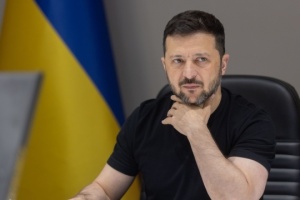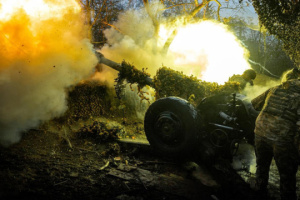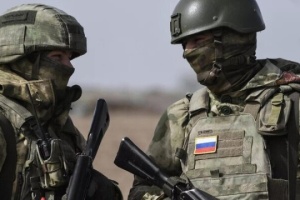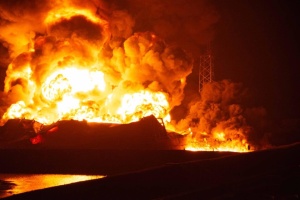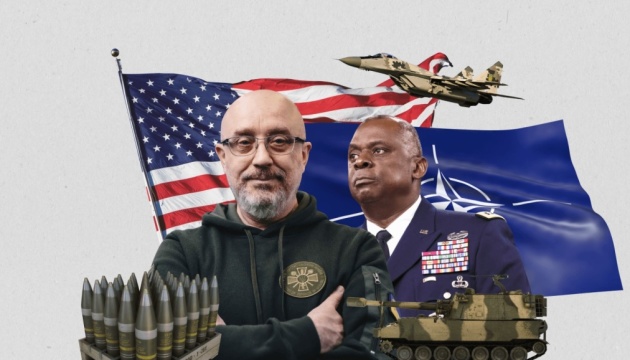
How Ramstein 14 became logical continuation of Vilnius 2023
A week has passed since the NATO summit in the Lithuanian capital. The hotheads who skeptically assessed its results for Ukraine as "betrayal of the betrayed" have cooled down a bit. After all, the heads of those who were shouting at the top of their lungs about a "victorious victory" have also cooled down. And this is good. After all, if we look at Vilnius soberly, we were not told categorically "no," but were cautiously confirmed in the final communiqué agreed upon by all allies that our Euro-Atlantic perspective is real: "We will be able to extend an invitation to Ukraine to join the Alliance when the Allies agree and when all the conditions are met." As for the former, there should be no problem with this. In fact, all the member states of the Alliance (perhaps with the exception of Hungary) agree that Ukraine belongs in NATO. As for the second point... Yes, there are nuances. Ukraine will not only have to finish the job on the battlefield and force Russia to retreat (ideally surrender), but also change itself, i.e., implement a number of key reforms. Meanwhile, as long as the process of democratic transformation continues, in which we, by the way, are more interested than anyone else, our partners promise to continue supporting us with money, weapons... So is it bad? Obviously not.
As for the support...
In the light of the Vilnius discussions, reports of another - the fourteenth - Ramstein somehow went to the periphery. On the eve of the meeting, Ukraine's Defense Minister Oleksii Reznikov had a traditional phone conversation with Pentagon Chief Lloyd Austin.
"Had a conversation with my friend and colleague Lloyd Austin: exchanged impressions of the NATO summit in Vilnius; discussed ways to accelerate Ukraine's movement towards prompt reunification with NATO; discussed plans for tomorrow's meeting of the Contact Group on Ukraine's Defense in the Ramstein format; discussed the situation on the battlefield and the needs of the Armed Forces of Ukraine in weapons and equipment," Mr. Reznikov wrote on his Twitter page.
So, what can we say about the outcome of the Ramstein meeting, which was a logical continuation of the NATO summit, and, in fact, once again about the results of the summit itself "on the cold shoulder"?
Let's start with the last one.
A Week After: Why Ukraine Got the Most Out of the NATO Summit
Valentyn Hladkykh, a political scientist and expert at the "United Ukraine" think tank, says that the NATO summit did not exceed his expectations, but it definitely met them.
First, he notes, NATO's position on Ukraine's future in the Alliance was clearly articulated.
"If earlier Ukraine's future in NATO was seen only as one of the possible alternatives, now the other options have completely disappeared. Just as the "hybrid options" of Ukraine joining NATO almost in parts, as proposed by Fukuyama and Kissinger, have disappeared, both senseless and dangerous, in my opinion. It is also good that our accession to the Alliance was not tied (at least formally) to the end of the war. This would have encouraged Russia to prolong it at any cost," explains Mr. Hladkykh.
Regarding the latter, we agree with the expert, because on the eve of Vilnius, both in Ukraine and in the West, it was said that giving our country an "open-ended ticket to the Alliance" - that is, as soon as the war is over - would encourage Russia to continue the war at all costs.
Secondly, the political scientist continues, it was clearly stated in Vilnius that Ukraine will become a member of NATO, bypassing at least the MAP, which could potentially seriously accelerate its accession to the Alliance.
"Traditional talks about the need for reforms are more of a ceremonial and encouraging nature, rather than being put forward as a requirement. However, this does not mean that reforms can be avoided. It only means that calls for reforms would be indispensable under any circumstances," the expert notes.
Thirdly, and this is even more important than the previous two points, according to Hladkykh, Ukraine has received security guarantees from the G7, which, as we now know, has been joined by six more countries.
"This is not only an important step in shaping the future security system of our country until we become a full-fledged NATO member, but also a clear signal to Russia that Ukraine will have everything it needs to effectively counter Russian aggression. It should be noted that the G7 Declaration of Support for Ukraine is conceptually consistent with the ideas set forth a year ago in the Kyiv Security Compact, which was announced as a kind of prologue to Ukraine's NATO membership," the political scientist emphasizes.
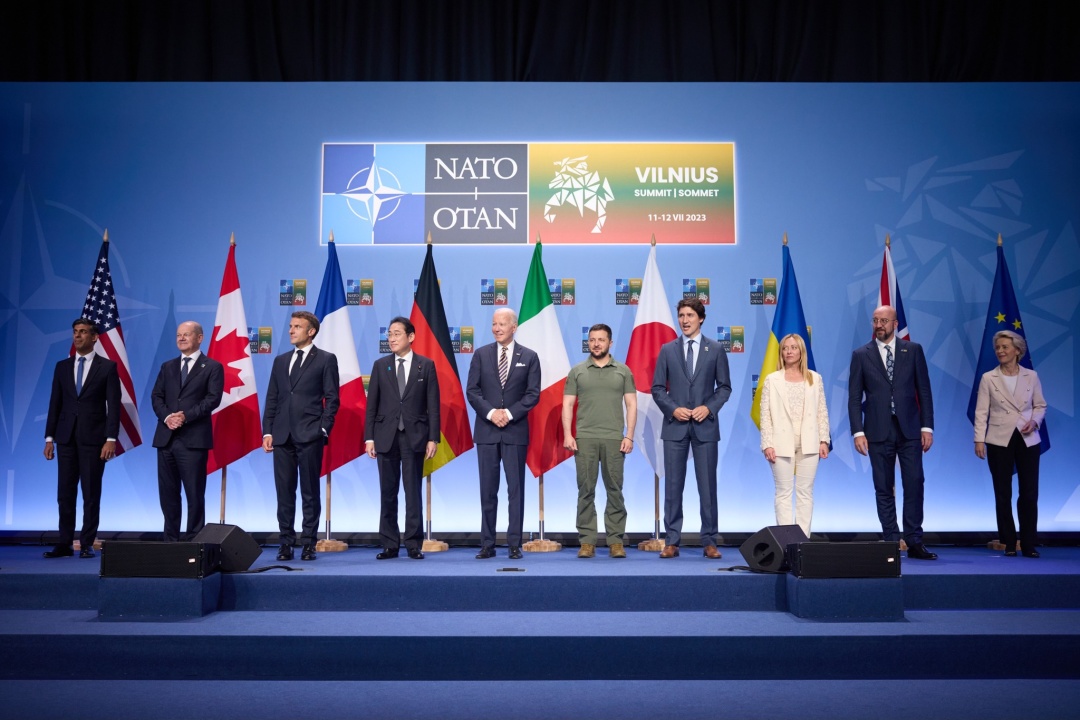
Refat Chubarov, a Ukrainian Crimean Tatar politician and public figure, Member of Parliament of the III-V and VIII convocations, quoted paragraph 10 of the NATO Summit Communiqué: "We reaffirm our unwavering solidarity with the government and people of Ukraine in the heroic defence of their nation, their land, and our shared values. We fully support Ukraine’s inherent right to self-defence as enshrined in Article 51 of the UN Charter. We remain steadfast in our commitment to further step up political and practical support to Ukraine as it continues to defend its independence, sovereignty, and territorial integrity within its internationally recognised borders, and will continue our support for as long as it takes. We welcome efforts of all Allies and partners engaged in providing support to Ukraine."
Mr. Chubarov's comments follow: "I would ask the skeptics to stop hissing that these are just words... First of all, this is a position in which the most important words, at least for me, are contained here: "We remain steadfast in our commitment to further step up political and practical support to Ukraine (...) and will continue our support for as long as it takes." You will agree that since February 24, 2022, these assurances have been backed by concrete assistance in the military, economic and other spheres, the volume of which is only increasing."
Second, all military and financial assistance to Ukraine, as well as solidarity in all other areas, will continue."
"And here we come to the main point: in order for this "as long as necessary" to never be questioned by any of the current NATO members, we need to realize that the quoted paragraph is cemented with other parts of the document, which spell out other, but fundamental postulates for the free world," the expert says. - "So, this is not a case of, 'We are fulfilling this, and here, we will think about it...'"
It's not just about helping at the front...
"Yes, we are talking again about the fact that while the Armed Forces of Ukraine and other units of the Ukrainian Defense Forces are confronting the Russian aggressor, all other sectors of Ukrainian society should ensure the development of the country to the level of the standards that will finally approve Ukraine in NATO and the EU," said Refat Chubarov. He added: "I would like to say good words to the Ukrainian government, which is trying to use all possible mechanisms and levers to further strengthen Ukraine's position in its Euro-Atlantic movement. I am confident that we will succeed in the future. And victory over the Russian barbarians."
Finally, political scientist and international expert Volodymyr Volia also noted that the summit in Vilnius was successful for Ukraine in general. And the fact that our country did not receive a specific invitation there... Given the circumstances, perhaps it is for the best.
"After all, Ukraine's invitation to NATO could have provoked Russia to freeze hostilities on the existing line of fire. And for many years to come, the Ukrainian territories captured by Russia could be at its complete disposal. Therefore, the West is thinking quite realistically," Mr. Volia summarized.
By the way, Ukrinform has recently written that the only possible option for Ukraine's accession to NATO right now is when our country is accepted into the Alliance, but without the territories where military operations are taking place. Why does this model not suit us? For more details, please follow the link.
Ramstein results: counteroffensive is a priority, partners will provide Ukraine with critical needs
On July 18, the Contact Group on Ukraine's Defense, which includes more than fifty world powers, held a regular meeting in virtual mode. This meeting was, in fact, a continuation of Vilnius, where partners, including Germany, Australia, Norway, the United Kingdom, France, the Netherlands, and Canada, announced at least seven military assistance packages for our country. Namely, more than 1.5 billion euros of military aid, which will include SCALP long-range missiles, Leopard tanks, additional Patriot systems, pilot training on F-16 fighters, and so on.
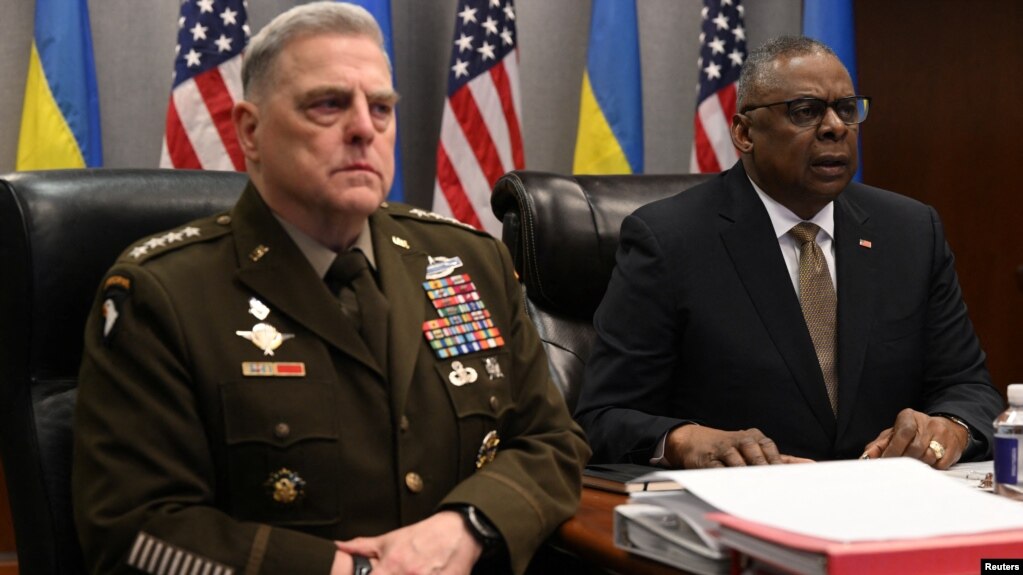
The focus of Ramstein 14 is to make sure that Ukraine has everything it needs to successfully continue its counteroffensive.
"Ukraine's fight for freedom is a marathon, not a sprint. We have already provided Ukraine with critical assets, such as air defense and ammunition, and we do not intend to stop. Make no mistake [obviously, this is an appeal to Russia] - we will continue to move heaven and earth to give Ukraine what it needs. The United States will stand by Ukraine for as long as it takes, and so will this Contact Group, which is a constant testament to our shared resolve," said U.S. Secretary of Defense Lloyd Austin.
What are the results?
- Armored personnel carriers for Ukraine
Ukraine will receive a batch of M113 armored vehicles from three European countries. Dutch Defense Minister Kajsa Ollongren said that the Armed Forces of Ukraine will receive them from the Netherlands, Luxembourg and Belgium.
"This is how we support the infantry on the ground," Ollongren added.
Ukraine will also receive the necessary spare parts. The equipment will be delivered to the Armed Forces of Ukraine in the near future.
- Assistance from the United States
In the coming days, the United States will announce another 42nd package of military support for Ukraine worth $1.3 billion.
This package may include VAMPIRE air defense systems (to combat UAVs). It is also planned to provide two different types of kamikaze drones: Phoenix Ghost and Switchblade.
Ukraine will also receive a significant number of UAV countermeasures from the Australian company DroneShield, radars, sensors, and analytical systems. In addition, the United States plans to transfer ammunition.
It should be added that the day before, the Armed Forces of Ukraine command confirmed that Ukraine had already received cluster munitions from the United States. Soon they will be used in operations to liberate the territories of our country.
What else did the allies agree on?
The Pentagon chief also said that the Ramstein participants discussed increasing the production of ammunition for Ukraine as part of the EU initiative and at the level of bilateral agreements.
"Such initiatives clearly show that members of this Contact Group continue to meet Ukraine's near-term needs, while also working to get Ukraine what it needs for the long-term," Lloyd Austin added.
They also discussed providing Ukraine with additional air defense equipment.
"I've asked our friends to continue to dig deep into their military stocks," the US Secretary of Defense said.
At the same time, Ukraine's partners considered the issue of preparing practical training for Ukrainian pilots on F-16 fighters.
"We heard from the co-leads of the F-16 Training Coalition, Denmark and the Netherlands. They continue to make progress on a cohesive training plan and to help some very eager Ukrainian pilots learn to fly fourth-generation aircraft," Mr. Austin emphasized.
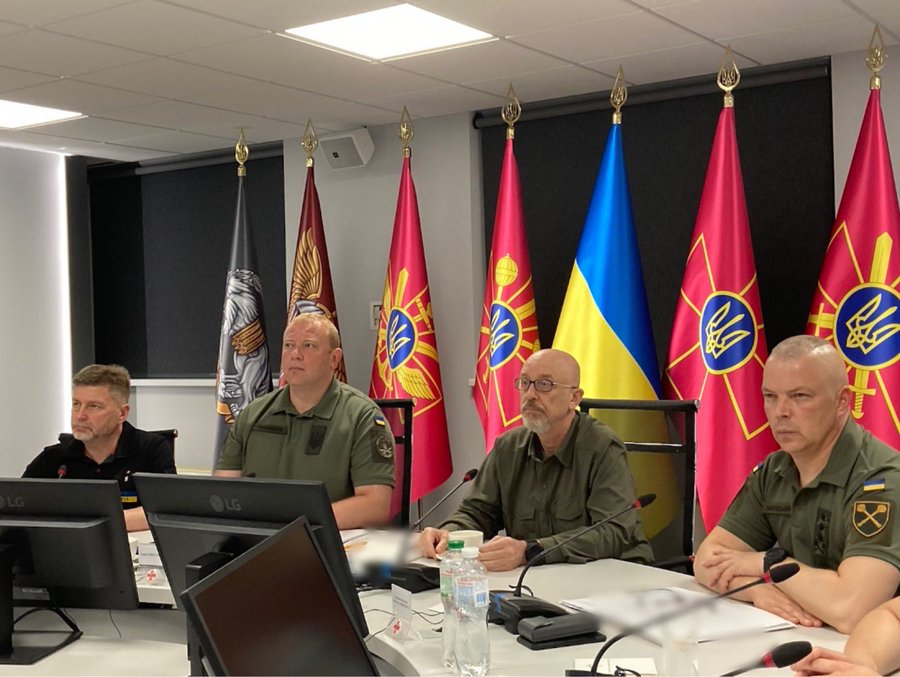
Some may think that the results of Ramstein 14 are somewhat modest, as everyone is used to the fact that after each meeting the partners announce significant military assistance packages. But this is not the case.
First, as already mentioned, the arms transfer was announced a week ago in Vilnius.
Secondly, not all information gets into the public domain. For example, we often find out about the supply of certain types of weapons to us after a certain period of time. This is dictated by the logic of war. And this is an absolutely correct position.
Thirdly, the fact that everything went well for our country at Ramstein is evidenced by the post of Defense Minister Oleksii Reznikov, who wrote on Twitter: "Partners have once again shown unwavering support for Ukraine."
In addition, Mr. Reznikov briefly reviewed the results of the meeting, putting a "tick" next to each item, which means it was completed:
- priority - supply of weapons and equipment urgently needed to liberate the territory;
- focus - air defense, ammunition and armor;
- development of the IT coalition, creation of a coalition for demining.
So, in general, Ramstein-14 can be assessed positively. This platform is not intended for breakthrough solutions. Rather, it is a place to synchronize the clocks and voice the urgent needs of the Armed Forces of Ukraine. Today, these are air defense, ammunition, and armor. So the results are working.
F-16 aircraft are another matter. The process is difficult, which is a disadvantage, but it is underway, and this is encouraging. In any case, Ukraine will definitely get these fighters. Hopefully, the training of Ukrainian pilots will begin soon.
Myroslav Liskovych. Kyiv.
The first photo is a collage by Yulia Vinohradska / LIGA.net

